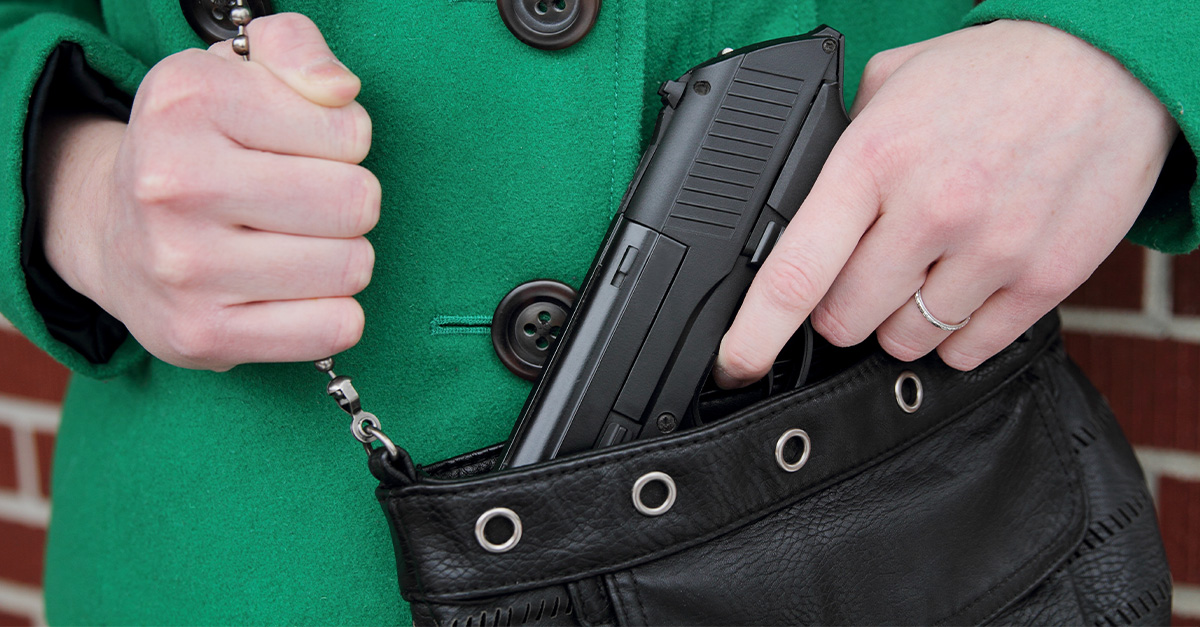


Get a free copy of Parental Rights & Education when you subscribe to our newsletter!

Five additional states are considering legislation to advance “Constitutional Carry” laws, which would grant individuals the ability to carry a concealed weapon without first obtaining a permit.
As of this moment, proposed legislation is moving through the five states to advance Constitutional Carry under the Second Amendment. Constitutional Carry states, as opposed to shall-issue states, do not require residents to possess a permit to carry a concealed firearm. Currently, Alabama, Georgia, Florida, Nebraska, and Ohio are all advancing legislation that would allow each of those states to allow “Constitutional Carry” in the context of owning and carrying a firearm.
If all of these bills pass, that would bring the number of unrestricted, permitless Constitutional Carry states to 26, joining Alaska, Maine, Texas, Iowa, Missouri, Kentucky, Vermont, Arizona, Kansas, Utah, South Dakota, Oklahoma, Idaho, Arkansas, Mississippi, Tennessee, West Virginia, Montana, New Hampshire, Wyoming, and North Dakota (state residents only).
In Georgia, Gov. Brian Kemp, R-Ga., announced his support for a measure that would eliminate the need for weapons permits in Georgia. “I believe the United States Constitution grants the citizens of our state the right to carry a firearm without state government approval,” Kemp said at a venue dubbed “The World’s Largest Gun Store.”
Georgia State Sen. Jason Anavitarte, R, who filed the legislation in March 2021, said, “I am proud to be leading the fight to bring Constitutional Carry to Georgia. Georgians should not need a permit to exercise their 2nd Amendment rights, defend themselves, and protect their families,” Anavitarite concluded.
Georgia, along with Alabama, Florida, Nebraska, and Ohio, are currently “shall-issue” states, meaning they require a permit for any resident who wants to carry a firearm, provided they meet certain criteria. In contrast, “may-issue” states, such as California, New York, New Jersey, and Maryland, are allowed to use their “own discretion” in choosing whether or not to issue or deny a permit.
Critics of the legal approach taken by the “may-issue” states have stated that it violates the Second Amendment. In fact, the Supreme Court in November heard arguments in the case of New York State Rifle & Pistol Association v. Bruen, which could have a substantial impact on whether and how discretionary permit laws in “may-issue” states are enforced.

Proponents of stricter gun rights laws have argued that different interpretations of the Second Amendment would enhance gun safety, leading to lower gun-related deaths. However, evidence has shown that there is not necessarily a direct correlation between more restrictive gun laws and fewer gun-related fatalities or accidents. For example, the city of Chicago, which has one of the strictest sets of gun laws in the country, saw a massive rise in gun-related crime towards the end of 2021, and there are no signs that the city’s crime wave is slowing. Furthermore, other large cities enforcing strict gun control legislation, such as Baltimore, Philadelphia, and Los Angeles, are also seeing historic increases in crime, particularly homicide.
Given this evidence, stricter gun laws do not necessarily result in a reduction in gun violence — and may actually spur it as law-abiding residents are left more defenseless. Not only that, placing any limitations on constitutional rights guaranteed to all Americans by the Second Amendment leads to an unnecessary slippery slope, particularly in the context of individual liberty.
The Second Amendment has long been seen as a bulwark against government encroachment and oppression. The Founding Fathers lived through a revolution and deeply understood the impact of a small but well-armed group of citizens banding against a tyrannical government.
However, there is also the question of self-defense.
In 2008, the Supreme Court affirmed that individuals — not just formal militias — have the right to keep and bear arms in the landmark case of District of Columbia v. Heller. Two years later, the High Court ruled in the case of McDonald v. Chicago that the Constitution also limits the power of states and localities to control gun ownership
Justice Samuel Alito wrote, “Self-defense is a basic right, recognized by many legal systems from ancient times to the present day…. Individual self-defense is the central component of the Second Amendment right.”
As governments continue to embrace the “Defund the Police” movement and more and more progressive prosecutors refuse to prosecute offenders and embrace no-bail policies, public safety and civic order is becoming a major concern for a growing majority of Americans. As such, states recognize that they must provide their citizens with the right and the means with which to effectively defend themselves and their families.

Notifications